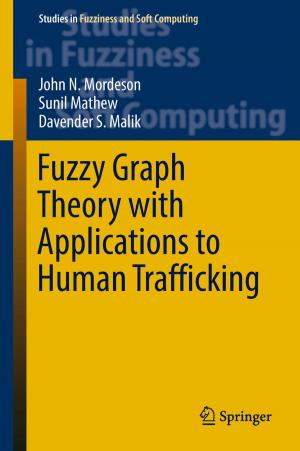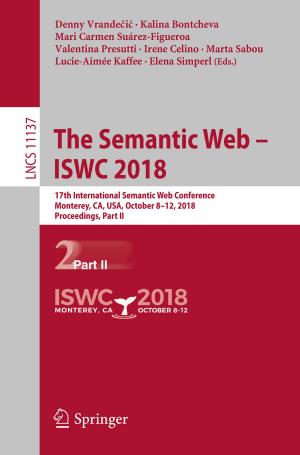The Role of Trust in Conflict Resolution
The Israeli-Palestinian Case and Beyond
Nonfiction, Health & Well Being, Psychology, Personality, Social Psychology| Author: | ISBN: | 9783319433554 | |
| Publisher: | Springer International Publishing | Publication: | February 21, 2017 |
| Imprint: | Springer | Language: | English |
| Author: | |
| ISBN: | 9783319433554 |
| Publisher: | Springer International Publishing |
| Publication: | February 21, 2017 |
| Imprint: | Springer |
| Language: | English |
Built on the premise that trust is one of the most important factors in intergroup relations, conflict management and resolution at large, this volume explores trust and its mechanisms and operations especially in the Israeli-Palestinian conflict. Significantly, this volume focuses not only on the nature of trust and distrust in the Israeli-Palestinian conflict, but it also explores how it is possible to build and increase trust on both sides in the conflict, a necessity in order to advance the stalled peace process.
As trust is a concept that is interdisciplinary by nature, so are this volume’s contributors: sociologists, philosophers, sociologists, social psychologists, political scientists, as well as experts in the Middle East, Islam, Judaism and the Israeli-Palestinian conflict bring together real multidisciplinary perspectives that complement each other and then provide a comprehensive picture about the nature of trust and distrust and its ramification and implications for the Israeli-Palestinian conflict. Divided into five thematic parts, the volume begins with by examining the theoretical basis of trust research from multiple perspectives. Then, it presents chapters on trust, distrust, and trust-building in other conflicts around the world. The third part is a unique feature of this volume as it takes a contextual approach: it emphasizes the importance of particular cultural and religious considerations on both sides of the conflict. The thrust of the book is examined in the next section. Part IV discusses and analyses various aspects of trust, and specifically distrust, in the context of the Israeli-Palestinian conflict. Significantly, the chapters of this part take the perspectives of the participants in the conflict: Israeli Jews, Palestinians and Israeli Arabs.
Finally, the volume concludes by providing an integrative conceptual perspective based on the principles of social and political psychology. An important goal of this volume is to not only explore trust and distrust in an intractable conflict, but also to provide practical multi-disciplinary outlooks and implications to advance trust building in two conflict ridden societies—Israeli and Palestinian, and other societies around the world.
Built on the premise that trust is one of the most important factors in intergroup relations, conflict management and resolution at large, this volume explores trust and its mechanisms and operations especially in the Israeli-Palestinian conflict. Significantly, this volume focuses not only on the nature of trust and distrust in the Israeli-Palestinian conflict, but it also explores how it is possible to build and increase trust on both sides in the conflict, a necessity in order to advance the stalled peace process.
As trust is a concept that is interdisciplinary by nature, so are this volume’s contributors: sociologists, philosophers, sociologists, social psychologists, political scientists, as well as experts in the Middle East, Islam, Judaism and the Israeli-Palestinian conflict bring together real multidisciplinary perspectives that complement each other and then provide a comprehensive picture about the nature of trust and distrust and its ramification and implications for the Israeli-Palestinian conflict. Divided into five thematic parts, the volume begins with by examining the theoretical basis of trust research from multiple perspectives. Then, it presents chapters on trust, distrust, and trust-building in other conflicts around the world. The third part is a unique feature of this volume as it takes a contextual approach: it emphasizes the importance of particular cultural and religious considerations on both sides of the conflict. The thrust of the book is examined in the next section. Part IV discusses and analyses various aspects of trust, and specifically distrust, in the context of the Israeli-Palestinian conflict. Significantly, the chapters of this part take the perspectives of the participants in the conflict: Israeli Jews, Palestinians and Israeli Arabs.
Finally, the volume concludes by providing an integrative conceptual perspective based on the principles of social and political psychology. An important goal of this volume is to not only explore trust and distrust in an intractable conflict, but also to provide practical multi-disciplinary outlooks and implications to advance trust building in two conflict ridden societies—Israeli and Palestinian, and other societies around the world.















